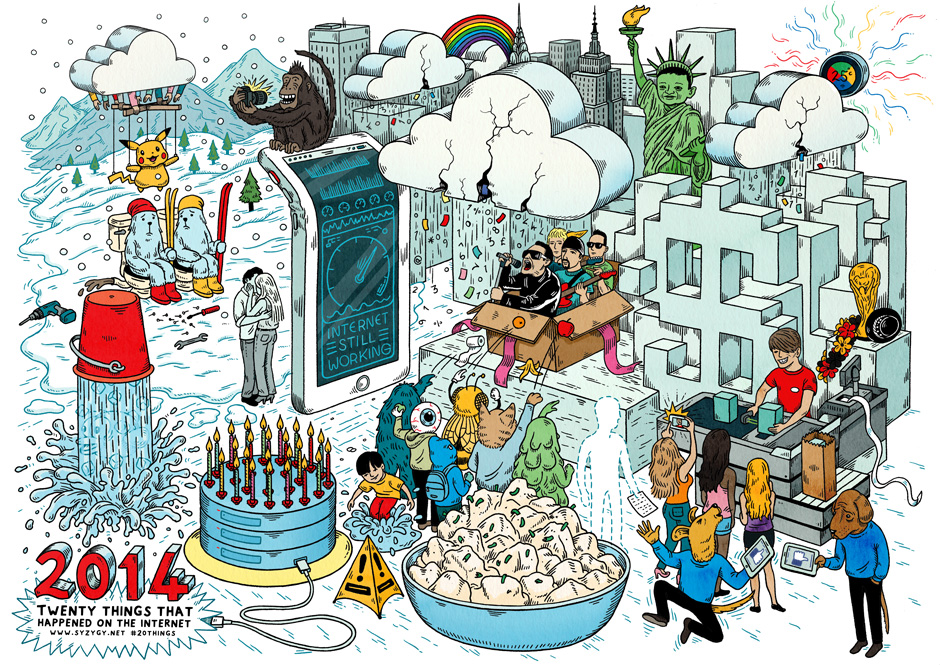If a tree falls in a forest and no one is around to post it happening, did it actually happen? Probably not, if Syzygy’s wrap-up of internet happenings in 2014 is anything to go by. The world hashtagged and logged every aspect of life online.
The list reveals a world where a myriad of selfie-snapping smartphones, trackers, GoPros and drones digitally defined what happened. Whether you were an Olympic athlete logging #SochiProblems or a teen girl supporting #AlexFromTarget, if it happened, you hashtagged it and documented it online.
Remember #FirstKissVideo, in which strangers kissed online, or #TheFappening, the mass leak of private celebrity pictures from iCloud? Forget 50 Shades of Grey – digital intimacy is the new black.
Now think back to the #IceBucketChallenge, that vast, viral exercise in ‘conspicuous consumption’. Can we truly be good today without being seen to be good online? It’s as if we’ve realised that whoever or whatever is chalking up our good deeds is using the internet to do it.
Did you spot Kim Kardashian’s bootylicious PR stunt #BreakTheInternet? If you – or your butt – is not big online, then you’re not big. Being famous today means being famous online.
>See also: Achieving trust in a digital world
It’s not that the internet is everywhere; it’s that it increasingly defines everything, including ourselves. No more an adjunct or derivative part of our lives, the internet defines who we are. The European Court of Justice pretty much affirmed this with new ‘right to be forgotten’ legislation that acknowledged how reputations are built and destroyed today by Google search results.
As the internet becomes the defining arbiter of reality, the reality of digital marketing is being redefined. Marketers have long helped people extend, expand and strengthen their sense of self through branded goods, but now brands are helping people define their digitally extended selves. The future of digital marketing will be less about branding goods and services online, and more about helping people brand their digital selves.
Viewed from such a perspective, Amazon’s 2014 purchase of TwitchTV for $970 million is a smart investment. TwitchTV helps digital identity construction by allowing gamers to project their gaming prowess online.
Similarly, Microsoft will see its purchase of Minecraft developers Mojang as an opportunity to help 100 million gamers showcase their passion and creativity online. Meanwhile, the monster $25 billion Alibaba IPO will help the e-commerce giant support its goal of turning e-commerce from a way to shop into a lifestyle.
In sum, if 2013 was the year of the selfie, then 2014 was the year of the digital self – when the digital extensions of ourselves took control and began to truly define us.
Sourced from Paul Marsden, Syzygy










